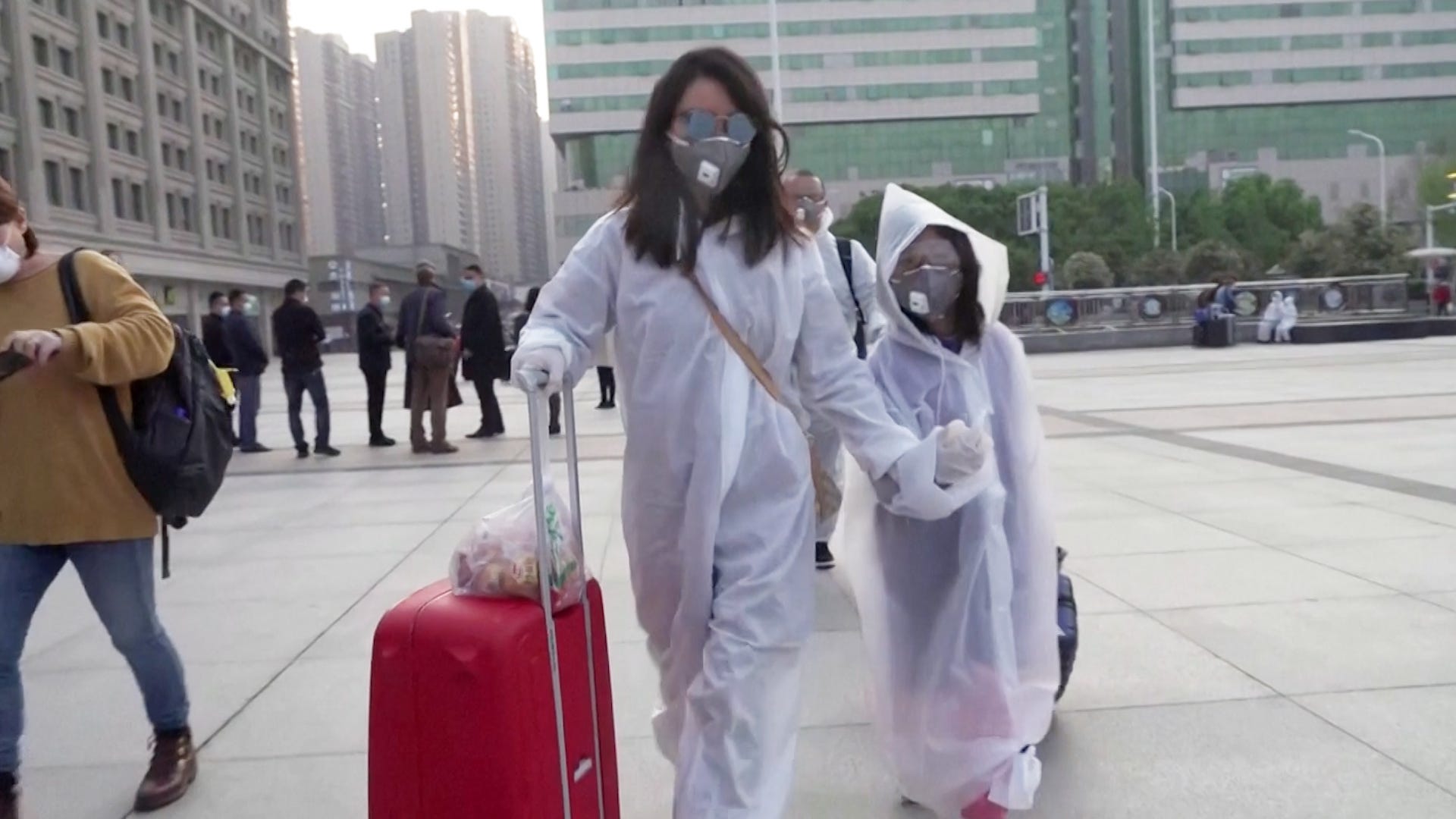- The government of Wuhan, China, last week ended a citywide lockdown that had brought the city to a standstill for 76 days.
- Wuhan was the city where the first known case of the coronavirus was reported in December 2019.
- Roads, train stations, and the city’s airport have now resumed operations for cautious travelers.
- Locals and transplants alike expressed mixed emotions at the end of the lockdown.
- View more episodes of Business Insider Today on Facebook.
Getting back to normal is possibly in sight for the residents of Wuhan, China, the epicenter for the coronavirus outbreak.
Lockdown of the city officially ended just after midnight on April 8 – 76 days after the government ordered the restrictions to curb the spread of the coronavirus on January 23.
When speaking with people around the city, various news outlets found the population experiencing mixed emotions from their newfound freedom.
According to Reuters, one resident told China Central Television that “even if I’m not doing anything, I feel happy, just being able to hang out a bit, having a look at the sky and stepping on the ground.”
Another local man who hadn't been out of his house since January 21 said he felt "much better and refreshed."
A meat vendor identified as Zheng told Reuters she thought the epidemic went on too long, saying, "no one is making money when they're stuck at home." And despite the reopening, her shop still has difficulties attracting customers.
"As you can see, we're open and there isn't any business. In the past, we had a few customers that could prop up our business. Now if we're selling as normal then there is still no business. We can't sell anything," she said.
As the city's transportation hubs have resumed operations, travelers are wearing protective gear including face masks, goggles, and even some full-body coveralls while buying tickets and going through security.
Liu Jia, a passenger departing from the city's Hankou railway station, said the epidemic had delayed her plans to go home during the Chinese New Year holiday in January. She said her family asks her every day: "When are you coming home?"
At Wuhan's Tianhe Airport, Wang Wenshu was leaving Wuhan to go back home to see her parents.
"I haven't been out since January 21. This is the first time I left the house today," she said. "Because it happened so suddenly, I didn't know I'll be stuck here for so long."
Another plane passenger, Xu Yuanyuan, was traveling with her young son. Concerns over the length of the flight and tight quarters onboard the plane did not make the choice to leave Wuhan easy for her.
"I feel both excited and nervous," she said. "My kid hasn't had vaccine injections for months. And there are all sorts of insurance that we need to deal with. So we have to go back."
Through the worries, the city's population of 11 million is experiencing grief on a grand scale. People gather at public memorials to mourn loved ones, friends, and healthcare workers.
Gui Yihong was a volunteer who helped deliver supplies to medical staff. He laid flowers at one memorial to remember a colleague lost to the virus.
"For the last 80 days we have fought between life and death, and have finally gained victory. This was not easy at all to come by," Gui said. "If you weren't at the front line, you would not be able to experience this."
Officials are still cautious about the reopening and have introduced regulations to keep the coronavirus from returning in force. One such measure is requiring health QR codes on popular apps WeChat or Alipay for individuals leaving their residences.
One optimistic resident, Hu Haiyan, a kindergarten teacher, expressed hope through a single tear.
"I really feel like we've gone through the four seasons," she said. "I really feel the willpower of the Wuhan people. I am sure Wuhan will regain its past vitality and vigor."
